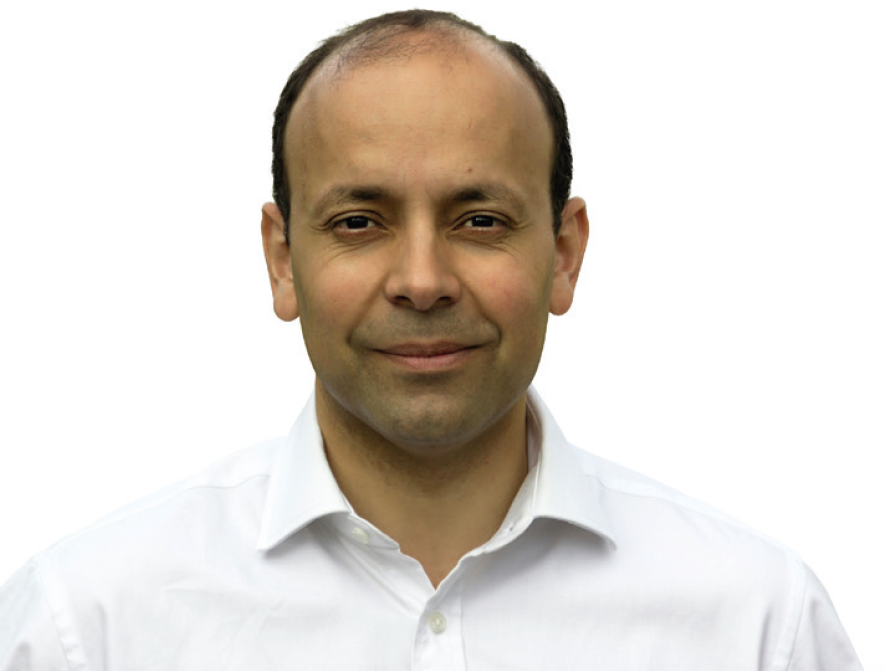We live in a world of data and the amount we create and consume is expanding exponentially. Data can be scary, and its misuse attracts the bulk of the headlines. But it can also be a powerful means to improve our understanding of the world and make it a better place.
However, there is no way a human can process the vast quantities of data created and extract useful intelligence from it without significant computational power and artificial intelligence.
Data overload applies in the case of pensions. With the retirement savings gap forecast to be £25 trillion in 2050 in the UK alone – 10 times current GDP – the next socio-economic crisis is looming unless we collectively get our act together. Sadly, most members have no clue how to deal with their pensions, and despite auto-enrolment, are still not saving enough.
AI presents a significant opportunity for the industry to get a better understanding of scheme members, to help providers innovate, remain relevant and deliver affordable and intelligent digital advice services for all of their customers. It can also offer to the member a vastly improved customer journey. A journey that they are crying out for, that is simple, intuitive, engaging and personalised.
With the increased responsibility placed on providers, trustees and advisers to adhere to their duty of care provisions and the subsequent increase in risk as a result of suitability requirements, ensuring scheme members’ engagement has moved from optional to a must-have. Gone are the days where the trustees and providers paternally looked after the interests of the scheme members with little or no participation from them.
We must address customers’ needs for financial guidance and advice, improve ease of access, and explain the choices over pensions and savings. We live in a brave new world where individuals bear the full responsibility of managing their savings yet they can neither find help nor affordable financial solutions. We need to engage, educate and empower people with an ultimate focus on improving their holistic financial wellbeing.
Our experience shows that AI can continually process 2 to 5 million data points per day for any given member. This includes information about a member’s personal, transactional and behavioural data, changes in spending patterns, articles they’ve read, nudges they have responded to, account balances and life events, markets and risk exposure, state and payroll taxes, rules and regulations, inflation and cost of living, location, property taxes, mortgage and refinance rates, longevity, school fees – the list goes on.
By keeping on top of all the details, AI-powered advice is personalised, timely, accurate, up-to-date, and anything but generic. A human adviser simply cannot factor in all the details in your life that AI is capable of handling with ease. AI also provides a level of control, monitoring and consistency of the advice given that creates a highly cost-effective way to maintain and cope with ongoing compliance requirements. It can also be used to augment the capabilities of a human adviser.
The real key to engaging members at scale is by understanding the context of where they are in their life stage and providing relevant and contextual advice based on what the member is hoping to achieve both in the short-term as well as the long-term. Both the data collected and AI are extremely powerful tools to crack this nut.
AI can help identify key personas and behavioural patterns. So whether members are baby boomers who have retirement on the horizon or disengaged millennials concerned with managing their income, expenses, debt and a deposit for a home, personas and their associated social benchmarks can in turn become powerful instruments to nudge members and create engagement by comparing their situation with people like themselves. Of course, this also helps providers to identify more accurately up selling and cross selling opportunities to different market audiences.
We have seen that 30 per cent of users take a prompted action after being sent a timely nudge and 20 per cent go on to try and open a savings account to manage their longer-term goals after setting up specific goals. Our data shows that it is not lack of desire to save that is preventing members from saving more, but a lack of knowledge and access to affordable advice on how to manage their finances more effectively.
Fahd Rachidy is found and chief executive of Abaka
